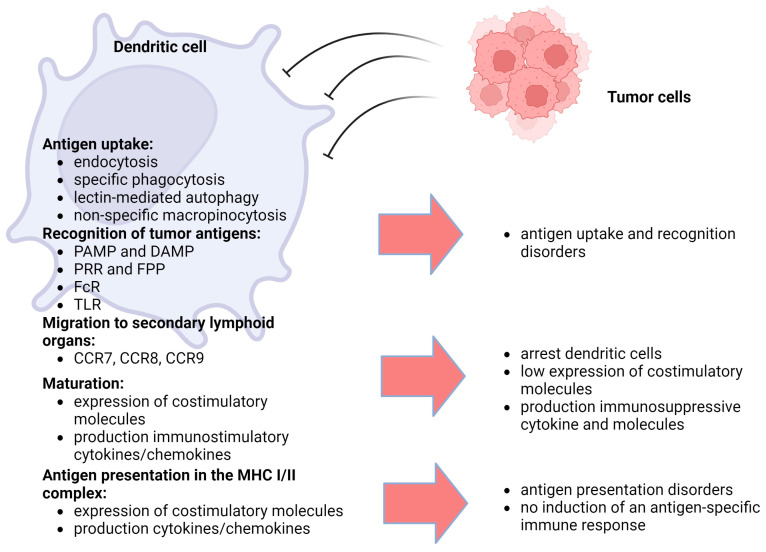Figure 1.
The main stages of antigen presentation by dendritic cells and their disorders. The main function of dendritic cells in the body is the capture, processing and presentation of antigens to immunocompetent cells; these processes involve a number of stages. Tumor cells have a negative impact on each of the stages of antigen presentation, suppressing the development of an antigen-specific immune response against them. This, on the one hand, leads to weak endocytosis of tumor cell components and processing inside dendritic cells. On the other hand, the maturation of dendritic cells is impaired as a result of inhibitors of immune cell differentiation secreted by tumor cells. As a result, dendritic cells remain immature, do not migrate to the lymph nodes, and have weak immunostimulating and antigen-presenting activity [92,93,94,95].

